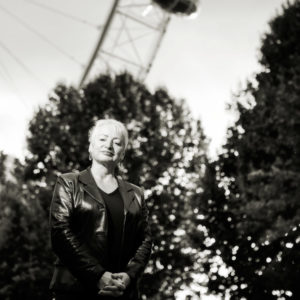What was the first writing advice you were ever given?
As a young English graduate longing to be a journalist, I chose a bad time to graduate. It was 1982 and publishers were closing their training schemes. Only two courses existed; one at the London College of Printing, the other at Cardiff Journalism School. Out of the blue I received a job offer on a new graduate trainee scheme run by business publisher Benn Publications. It was there in September 1982, sitting around the boardroom table in the impromptu Training Room, that I was given the piece of advice I still remember today and still use. Training editor Val Williams taught us Rudyard Kipling’s quote: “I keep six honest serving men (they taught me all I knew); Their names are What and Why and When And How And Where and Who.” It has stood me in good stead whether writing a news story, a feature, a press release or a novel. And the journalist in Connectedness, Rose Haldane, uses it too when she gets stuck in her research.
 What was the most recent writing advice you were given?
What was the most recent writing advice you were given?
That’s easy, it is something that had never occurred to me before until my copy editor pointed it out to me during the editing of Connectedness. It applied to the name of a character, Maud Nettlebed. I realise now I chose Maud’s surname because of a liking for the word, Nettlebed, which goes back to my days as a reporter writing about a furniture company called Brights of Nettlebed. The name stuck. However Dea Parkin, my editor, said it was an unlikely surname that took her attention off the page every time she read it. And that, she said, is a cardinal sin. Avoid anything that distracts the reader from the page, which breaks their concentration, which returns them to the real world, which stops them turning the page and reading another chapter. I guess this is a subjective judgement, but it appeals to the journalist in me who dislikes embellishments and sub-clauses in long sentences. So, I changed Maud’s surname to Nettles.
What is the piece of advice you’d most like to pass on?
Listen to the advice you are given but do not blindly accept it or reject it without consideration. Evaluate it, then adopt or discard it. There is no ultimate template of how you should write, what you should write, the rules you should obey or break. But, and it is a big but, you must listen to the advice and consider it before rejecting it. You must know the rules, before breaking them. You will be a better writer for it. We are bombarded these days with writing advice, never have novelists been so vocal about how they write, when they write, at what time of day. There is no right way and wrong way; there is your way. Be true to yourself. Listen to feedback and suggestions, be polite, be prepared to offer positive feedback and suggestions in return, always give the person giving the advice the respect of considering it. I have participated in many writing classes – as student and teacher – and watched as some students, whose minds were closed to advice, simply did not hear suggestions that could help them. I’ve also watched other students writing copious notes about how their work should be changed and I worry they would subsequently make changes without analysing why. Knowing who you are as a writer, having confidence in what you write, is not easily earned. There is a truth in Malcolm Gladwell’s 10,000 Hour Rule.
Novelist Sandra Danby is a proud Yorkshire woman, tennis nut and tea drinker. She believes a walk on the beach will cure most ills. Unlike Rose Haldane, the identity detective in her two novels, Ignoring Gravity and Connectedness, Sandra is not adopted. Follow her on Twitter @SandraDanby

